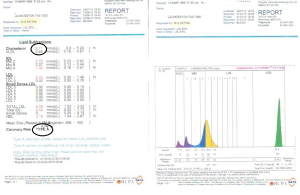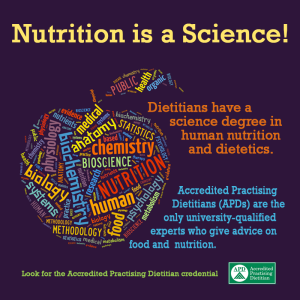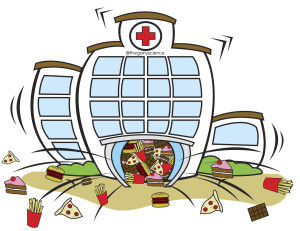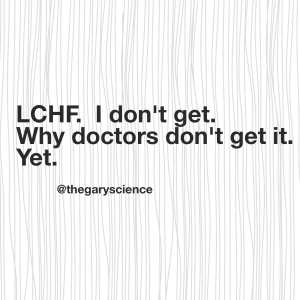This is education both ways. Download it and discuss it with your doctor.
This is what to expect if you go LCHF – Low Carb and Healthy Fat living.
The ongoing question I receive from patients and doctors is about the ‘cholesterol’ level. I keep saying that in isolation the cholesterol level is meaningless and creates more distress and anxiety for patients wanting to adopt a Low Sugar and Carbohydrate lifestyle. This means consuming more, but not masses, of healthy fats – nuts, pasture fed meats, dairy, avocado are staples.
The higher proportion of healthy fat in a diet seems to put most doctors into a tailspin of concern of ‘What about your cholesterol?’
From a cardiovascular risk factor aspect, there is only one number to be interested in. That is not some ratio combining different components of but the ACTUAL number of Small Dense LDL particles.
It can be measured indirectly by the Triglyceride level and if that is under 0.8 then it is unlikely that you have any significant number of small dense LDL’s in circulation.
If the concern continues then have a Lipid Subfraction Analysis. That will show you the exact breakdown of all lipids in your bloodstream. It is fast becoming the go to test in Cardiology research because it is accurate and not based on ratios or subtraction equations. It may cost you about $100 in some places but that is infinitely cheaper than the cost of taking a statin drug for the rest of your life based on some ‘cholesterol’ number on a page.
One of my patients has allowed me to post up a bit of her story and her Lipid Subfraction Analysis. She has shifted into a LCHF lifestyle, feels much better, healthier and lost a fair amount of weight. Her standard lipid tests showed her Cholesterol level to jump from 5.5 (9/2014) to 10.9 – her GP was ‘gravely concerned’ to say the least.
Her LDL Cholesterol had also skyrocketed from 3.3 (9/2014) to 8.2 with all sorts of alarm bells ringing with the doctor. Her ‘good’ HDL Cholesterol had also gone up but that was being ignored.
A Lipid Subfraction Analysis was called for and surprise, surprise – “Type A (NORMAL) profile. No additional risk of an adverse cardiac event”
Her good HDL’s were up and the circulating LDL’s were in the larger particle size and working as transporters – and all of that is fine. Result is less worry all round – and no statins.
One of my Cardiology colleagues is now on board with the LCHF lifestyle and has seen these results several times with patients. That Lipid Subfraction Analysis has been a major factor in his ‘coming around’ to LCHF living.
Download the PDF handout and start discussing it with your doctor. Let them know that you are informed of options before you start a lifetime dependence on statins with their known side effects.
Download available from http://www.nofructose.com/?p=614
“LIPIDS
Lipid profiles do change when you adopt an LCHF diet. The most profound change is a significant reduction of small dense LDL particles. These are a by-product of fructose metabolism and are the dangerous-sized LDLs associated with cardiovascular disease. They are not directly measured by any routine lipid testing.
The small dense LDLs are indirectly measured by the Triglyceride level. A number of 0.8 or less is indicative of no small dense LDLs in circulation. This is the cheapest method of assessing progress following LCHF principles.
Fat transport and mobilisation occurs on a low carbohydrate diet. This increased fat utilisation means more large ‘fluffy’ LDL particles are in action and therefore the overall cholesterol and LDL-C numbers may rise. This is not a concern.
The HDL levels generally rise which is an indicator of a healthy cardiovascular clearing system.
If concerns are raised regarding standard lipid profiles then other tests are available. The definitive one is a Lipid Subfraction Analysis which is readily available. It will define exact lipoprotein levels in a spectral analysis. Patients can expect to see a major reduction in the small particle sizes of zones 5, 6 and 7 (the small dense LDL ‘bad cholesterol’ particles). There generally is a rise in the large ‘fluffy’ transport LDLs in zone 1 and 2 (that is because fat is now being mobilised as a fuel source). HDL numbers are generally high. This will be reflected in a ‘low risk’ summary report.
Further information, including a 20 minute video by A/Professor Ken Sikaris, Chemical Pathologist at Melbourne Pathology, is available at http://www.nofructose.com/introduction/cholesterol-testing/“
https://www.facebook.com/393958287365295/photos/a.407869679307489.94446.393958287365295/882392208521898/?type=3
 No bureaucrat has ever asked me that. Ever. They just seem to see me as a troublemaker.
No bureaucrat has ever asked me that. Ever. They just seem to see me as a troublemaker.







